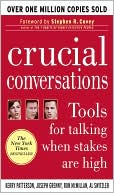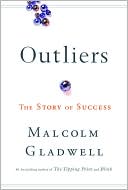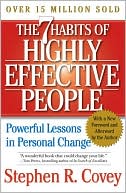The Go-Getter Girl's Guide: Get What You Want in Work and Life (and Look Great While You're at It)
Every office has one – a Go-Getter Girl – someone who seems to just know certain stuff about how to get the plum jobs/lifestyle she wants and damn, always looks great while she's at it. Magic? No, it’s about strategizing—and The Go-Getter Girl’s Guide shows you how.\ Born out of interviews with hundreds of successful, stylish young women—including award-winning journalist Soledad O’Brien, Spanx founder Sara Blakely, and bestselling novelist Emily Giffin—The Go-Getter Girl’s Guide...
Search in google:
Every office has one – a Go-Getter Girl – someone who seems to just know certain stuff about how to get the plum jobs/lifestyle she wants and damn, always looks great while she's at it. Magic? No, it’s about strategizing—and The Go-Getter Girl’s Guide shows you how.Born out of interviews with hundreds of successful, stylish young women—including award-winning journalist Soledad O’Brien, Spanx founder Sara Blakely, and bestselling novelist Emily Giffin—The Go-Getter Girl’s Guide provides a no-excuses, big-picture way of thinking about your life and career, as well as day-to-day strategies for how to:Navigate the tricky terrain of office politics Find and use a mentor Figure out when it’s time to get a new job (or career)—and have the courage to act Dress (and groom!) for success And take care of yourself physically and emotionally Combining the practical career wisdom of What Color Is Your Parachute? with the savvy fashion guidance of The Little Black Book of Style, this dynamite guide is sure to bring out the Go-Getter in generations of women to come. Library Journal Practitioner of employment law and lifestyle expert Shigley here serves as a big sister to young women on the road to professional and personal success. She clearly discusses what to look for in joining a gym, how to cultivate a mentor, and what's involved in the art of negotiation. Popular culture changes rapidly, but guides like this have proven popular among the target audience.
1.\ The Birth of the Go-Getter Girl\ The summer before my senior year at college, I really wanted to be lazy. No more shamefully underpaid journalism internships for me. I had spent previous semesters toiling practically wage free at places like Dateline NBC and Fast Company magazine. But this summer, I thought, I’m just going to have fun. In retrospect, I think this was code for, I’m about to graduate from college and I really have no clue what I want to do with my life or how to go about it, so I think I’ll just procrastinate a little longer! I took up a friend’s offer to move to New York and share a sweet rent-controlled sublet in Midtown, and the day after I arrived, I found myself a hostessing job at a hip downtown restaurant. There, the staff was a perfect slice of New York’s glittering, glamorous, wannabe life. The bartenders—all tall, dark, and Appaloosa-like—were "models"; the predominantly blond, buff, and all-American waitstaff were actors and singers; and the hostesses, a mix of exotic-looking beauties, were all dancers.\ The weeks passed, and I scurried along, delivering menus and crossing names off the always-pages-long waiting list, less fazed than the rest of the staff by the occasional celebrity sighting. (When Keanu Reeves showed up, you’d think the president had arrived!) Less fazed, that is, until one day a lesser-known-boldface name walked in: Soledad O’Brien, then the host of NBC’s Weekend Today.\ "Oh my gosh, do you know who that is?" I gushed to my fellow hosts, all hyperactive and borderline girl-crush. But I didn’t approach her. My gut told me not to disturb the famous lady with a stroller, hubby, and what appeared to be in-laws in tow. The next day, however, I was sitting in a park outside my apartment, feeling a bit bored with the hostessing gig, and at the same time a little ballsy, and I thought, Oh, what the hell, I’m going to write her a letter. I got out a pen and handwrote a three-or four-page letter, starting with the oh-so-original phrase, "I’ve never written a fan letter before." I told her how much I admired her work, then explained my interest in television broadcasting and my experiences as a summer intern at two news outlets. Finally, I said that I didn’t have a clue what to pursue after graduation and asked if she would ever be willing to chat with me. I included my phone number and address and sent it off to Soledad O’Brien, c/o Weekend Today at Rockefeller Plaza—to what I figured was surely a black hole of weirdo fan mail and never-to-be-opened press kits.\ A few days later, I was sitting in my apartment, watching MTV, when the phone rang. I picked up—okay, you know what’s about to happen—and heard a chirpy, television-toned voice at the other end. "Hello, is Debra there? This is Soledad O’Brien." I couldn’t believe it! She said she had received my letter and asked me to come down to the show and have lunch. I was speechless. Days later I found myself sitting in the Today Show studio at 30 Rockefeller Center, and then at a restaurant with Soledad. (She ate a monster hamburger, confiding that she had just found out she was pregnant with her second child.)\ Soledad was all business. Her first words when we sat down were a brisk, "So what do you have for me?"—meaning, fire away with the list of questions I was sure glad I’d prepared: How do I break into the field? (Producing, not on air.) How important are looks? (Very, but everyone will want you to change something so you just have to get over it.) How can you manage work and family? (You make it work.) At the end of our little meeting she generously offered to let me come visit whenever I wanted throughout the summer. I accepted her offer and went to visit every few weeks. Soledad set up mini–training sessions/informational interviews with other members of the staff and crew, and she let me sit in on some meetings and hang out with her behind the scenes, including when she was getting her makeup and hair done. She even started referring to me as her "faux intern." Who could have known that a simple, honest, handwritten letter would lead to such an invaluable introduction into the world of TV news?\ I certainly didn’t at the time, even if my instincts helped me stumble in the right direction. It wasn’t until after I entered the working world, first as an entry-level video journalist at CNN, and then as an editor for Atlanta magazine, that I made a startling observation: some women do know a set of unwritten, nearly second-nature rules about how to go after what they want and get it.\ MEET SUZANNE\ Suzanne is a young woman who, say, just started working at your office. She is smart, savvy, sophisticated, and stylish. She walks briskly into the conference room with a sparkle in her stride. She opens her mouth to speak, and all eyes turn, backs straighten, and everyone pays attention. Her words, filled with substance and thoughtfulness, pour forth polished and with just enough precision. She has presence—vibrance even. Above all else, Suzanne appears to be self-aware. But at the same time, her charisma is completely sincere.\ As she speaks, you’re wondering (hoping?) whether there is anything wrong with Suzanne. You glance from her ensemble (a tidy navy Nanette Lepore–looking suit) to her hands (which, if not manicured with some pale pinky color, are always neatly groomed) to her shoes (fashionable spectator heels with just a splash of pizzazz). Even the folders of documents she’s using for her presentation that day are placed in front of her all neat and organized—not unlike her entire office, you’ve noticed, which remains relatively clutter free even during deadline week.\ The degree of Suzanne’s substance and style is so impressive that, at first, you are—oh gosh, it kills to admit it—a little intimidated by her. Naturally, part of you wants not to like her—she’s just too poised and polished! She can’t possibly be down-to-earth, you think. But then you see her in passing around the office enough times to challenge that initial impression. She’s always smiling, and you’ll occasionally spot her in the break room making conversation with everyone from your boss to her secretary to the interns about, say, last night’s American Idol episode. And then you’re assigned to work on the same team as her for a project. She’s filled with ideas on how to get the job done (when did she find time to do all that extra research?), acts respectfully and appreciatively to everyone on the team, stays later than you and comes in earlier when it’s crunch time, and even volunteers to organize the food and beverage runs. Of course, she simply wows the bosses with the final product. You see that Suzanne is ambitious and focused, but you start to realize that she’s just plain cool. In other words, she is so not a b*tch.\ Then, seemingly out of the blue, you hear that Suzanne got the coveted promotion to a new division of the company, complete with a 30 percent raise and a fab new Managing Director title—and she’s only twenty-eight! You really want to hate her, but you can’t. You respect and admire her too much! And, it’s so clear to you that Suzanne is not Miss Perfect. She’s just a go-getter—that is, a Go-Getter Girl.\ After I’d been in the working world a few years, I’d met quite a few Suzannes—but at the time I hadn’t quite realized the shared characteristics among these distinctive women. Instead, you might say that the Go-Getter Girl was born a few years later on a beach in Cabo San Lucas, Mexico, where I was vacationing with my former college roommate, Jenn. It was one of our regular cross-country—or in this case transcountry—get-togethers in which Jenn, and a handful of college and postcollege friends, and I would update one another on our love lives, swap style advice, share war stories about work, and generally plot the course of our various hopes and dreams.\ In our years as recent college graduates we’d already observed the difference between certain types of young women in the workplace. There were the women, like Suzanne described above, who just seemed to know certain stuff about appropriate workplace behavior, how to socialize and network and how to always look great while they were at it. Then there were other young women who seemed frazzled, self-conscious, or easily dispirited—who stumbled to find their footing in a professional environment. We wondered what the Suzannes had in common—which factors set them apart from their less proactive colleagues. Jenn and I started to brainstorm women who typi-fied this all-around ambitious mentality, along with a certain fashion sense, poise, and grace. I thought about gals like Sara Blakely, the still-under-the-radar founder of Spanx, whom I’d met through work, and my mentor Soledad O’Brien. Jenn threw out some names of people who were successful but perhaps known for having a queen-of-mean personality or perhaps were not so stylish.\ "Yes, maybe," I said. "But you see, I’m thinking about young women who seem to have it all going on—they’re stylish, successful, sassy, maybe even sexy. Definitely super smart—what’s the ‘it’ about these women?" I mused, sitting there on the sand, as Jenn splashed in the waves. Then Jenn looked up and said, with the crystal clarity of those Pacific waters, "They’re Go-Getter Girls!" And that’s when I knew I had to write a book based on this unique breed of young women.\ Later, after I returned from Cabo, I sat down and decided to research the etymology of the term go-getter. I immediately went to the place where all research vague and specific begins nowadays: Google, of course. After a few clicks, I discovered that the word go-getter—a phrase I had heard people use often around places like CNN and Harvard (where I’d attended college), and that I had assumed was a hallmark of modern-day, go-go-90s ambition or dot-com-whiz-kid success—first appeared in American English around 1910. Online dictionaries defined the phrase as "an ambitious enterprising person" or "a person disposed to initiate action, rather than take instructions" or (a definition I particularly liked) "a person with a strong drive to accomplish useful goals; especially, one whose career progresses rapidly." Just like the Suzannes, I thought. There is even a 1921 story written by Peter B. Kyne called (what else?) The Go-Getter: A Story That Tells You How to Be One. I immediately went to Amazon .com and ordered it.\ Kyne’s story is about a young man trying to make it in the sales business. The man’s name is Bill Peck, and he is a wounded veteran who lost part of his arm and broke his leg in battle, forcing him to walk with a slight limp. Peck goes to see the curmudgeony old founder of a logging company, in search of a job, and the story follows how, despite his youth, his handicaps, and his lack of credentials, Peck proves himself to win a coveted position as a manager. I finished this brief novella—it’s just about sixty pages, plus an additional dozen pages of updated material by business writer Alan Axelrod—and thought, it’s a fine tale about persistence and general business acumen, but did it speak to the unique challenges that young women who are go-getters face in the workplace? For guys, succeeding in the working world may not be simpler, but it’s certainly different. Guys don’t worry about what happens if you start to cry at work—it’s just not gonna happen! They don’t fret too much if they have an issue with a friend (or frienemy) at work; they talk it out, have a beer, and all is well. Men don’t feel as much anxiety or discomfort when they ask for a raise or promotion; no one ever told them it’s "unmanly" to ask for what you want—whereas we may have heard that it’s "unladylike" to do the same.\ Whether it’s politically correct to say, a young woman in the workplace today must deal with an array of issues that men simply don’t face. She has to figure out how to navigate office politics while dealing with the Mean Girls-esque gossip scene that plagues many workplaces and how to shape her image as a strong, focused leader without crossing the line into b*tch category. She has to find mentors, whether male or female, in professions that may still be old-boys’ clubs—carefully avoiding the perception she’s a tart when those mentors happen to be male. On top of all that, she must tackle daily wardrobe issues, like the all-important question of how to eliminate the tummy bulge in her killer wrap dress. And whether she’s in a boardroom, a courtroom, or a newsroom, her smarts and statements will likely be judged as harshly as those outfit selections. Let’s face it: we live in a world where a tiny blush of cleavage by Hillary on the Senate floor is the subject of Wall Street Journal articles and a top story on cable news!\ Modern young women want it all when it comes to work—they want to be success stories instead of squatters; fashion mavens instead of frumps; and, maybe, on occasion, the most popular girl in the room. Did the Go-Getter tale address all that? Of course not. There is something to this notion of the go-getter spirit that is timeless and true, but in reading the book it was clear that the rules for men (um, circa 1920) don’t really apply to today’s young women.\ However, like the fictional Bill Peck of the 1920s, there are many real, modern women out there today who are able to triumph over this seemingly endless array of minor and major obstacles, finding the jobs and building the lives of their dreams. My position as an associate at a high-powered law firm later on in my career only confirmed this insight. Even though I didn’t quite know what I was doing that summer before my senior year in college, I later saw from observing my female colleagues that not every woman would have felt emboldened enough to write that letter to Soledad O’Brien—or, as Ms. O’Brien had more dramatically done years earlier, leave school, take a job at a local TV station, and work her way up and around the country to land a national-network job by her early thirties. Indeed, many young women tend to "go with the flow" instead of taking the initiative to go after their goals. Many miss out on plum projects and aren’t sure how to turn things around and impress their bosses. Many get stuck in the mud of office gossip and lose sight of the big picture of their careers. These get-along girls, as I came to think of them, often have the best of intentions, but they simply don’t know how to navigate the often-treacherous working world.\ MEET JULIE\ Let’s talk in more detail about the get-along girl, and for the sake of argument let’s call her Julie. Julie is a smart, nice girl with great potential—but right now, she seems like a good candidate for a make over on one of those reality shows. Julie is a little anxious and self-conscious, even frazzled at times. She’s stuck in a job she really doesn’t enjoy, but she can’t quite determine how to get out of it, or she keeps getting passed over for a promotion but usually finds herself paralyzed by fear when it comes to navigating the next steps of her career. Julie might be seen at work pouting more often than smiling, distracted more often than engaged. She lacks initiative, some would say, but perhaps doesn’t really even know what "showing initiative" means!\ When it comes to her clothes, Julie is not quite put together. For example, maybe her pants are constantly dragging on the floor, her sweater is faded and pilled, or her black pants and too-revealing tank look more appropriate for a nightclub than a boardroom. These fashion faux pas probably result from lack of know-how, not from lack of care (though this may be the inadvertent message she is sending, as we’ll explore below).\ Other young women? They know that success does not happen by accident. They’re the girls who get the swanky job—and the promotion and the raise—when everyone else is lamenting the bad market. They’re the ones who have a social calendar brimming with exciting friends and jet-set adventures when everyone else can barely fit in a workout or a haircut. To top it all off, their outfits always look so damn put together, and you’d swear they spent a fortune and three days getting ready. These smart, savvy, sophisticated young\ GGG Quiz: What’s Your Type?\ Are you a GGG or a get-along girl? Read the following statements and ask yourself if they are true or false.\ 1. I never gossip at the office.\ 2. I have great mentors that I consult regularly.\ 3. I almost never break down in front of others at work.\ 4. I’m strategic about my career—tactical, even.\ 5. I’m not afraid to take risks when it comes to my career.\ 6. I regularly get compliments on my clothes at work.\ 7. I have several beauty rituals for what I consider "maintenance."\ 8. I know how to "informational interview" and have done it often.\ 9. I’ve asked at least once for a big raise.\ 10. I usually wear some makeup to work.\ 11. I own a control undergarment.\ 12. I eat healthy and exercise regularly despite my crazy schedule.\ 13. I take the initiative to talk to people I don’t know at parties.\ 14. I’m currently in my dream job (or pretty darn close).\ If you answered "true" to most of the above, you’re on the right track to being a GGG. If you answered "false" to more than a few, then you may inadvertently be stuck in get-along-girl land. Either way, keep reading for how to break through and fulfill all of your GGG potential!\ Excerpted from The Go-Getter Girl’s Guide by Debra Shigley.\ Copyright 2009 by Debra Shigley.\ Published in September 2009 by St. Martin’s Press.\ All rights reserved. This work is protected under copyright laws and reproduction is strictly prohibited. Permission to reproduce the material in any manner or medium must be secured from the Publisher.
\ Library JournalPractitioner of employment law and lifestyle expert Shigley here serves as a big sister to young women on the road to professional and personal success. She clearly discusses what to look for in joining a gym, how to cultivate a mentor, and what's involved in the art of negotiation. Popular culture changes rapidly, but guides like this have proven popular among the target audience.\ \








